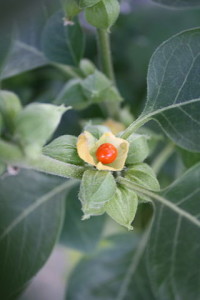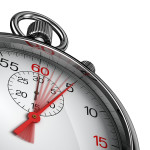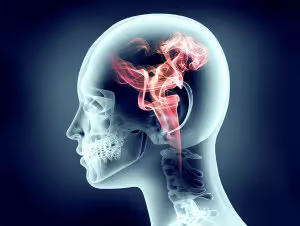Table of Contents
Ashwagandha (Withania somnifera) is one of the most powerful herbs powerful Ayurvedic herbs in healing. One of the main benefits of Ashwagandha is its remarkable stress-relieving properties. And stands shoulder to shoulder with some of the most potent drugs used to treat depression and anxiety.
In Sanskrit, Ashwagandha means “smell of horse”. Meaning this herb imparts the strength and vigor of a stallion.
Ashwagandha is native to India, Pakistan and Sri Lanka. And is now being grown in other regions including the United States.
Ashwagandha extracts helps protect your central nervous system and maintain brain health. It is a promising alternative for aging and neurodegenerative pathologies treatment including Alzheimer’s and Parkinson’s.
As an antioxidant, Ashwagandha seeks out and destroys free radicals. Free radicals have been implicated in many age-related diseases. There’s even some emerging evidence that Ashwagandha offers anti-cancer benefits
for brain tumors. Even though so much is out there stating that the active principles and underlying molecular mechanism (s) remain largely unknown for this ancient Ayurvedic herb.
Get ready to explore how Ashwagandha benefits your brain because we will go as deep as possible.
Ashwagandha helps:
- Reduce Stress: Ashwagandha helps reduce anxiety and depression. It reduces the stress hormone cortisol, lowers blood sugar levels, and improves lipid profiles.[i]
- Neuronal Regeneration: Ashwagandha helps regenerate axons and dendrites of brain nerve cells. And helps reconstruct synapses, the junctions where nerve cells communicate with other cells.[ii] Boosting memory and restoring neural networks affected by neurodegenerative disease.
- Neurotransmitters: Ashwagandha extract inhibits acetylcholinesterase. The enzyme responsible for breaking down the key neurotransmitter acetylcholine.[iii] Boosting memory, learning and cognition.
Overview

Ashwagandha (Withania somnifera) is one of the most powerful herbs in Ayurvedic healing. This Indian traditional home medicine as an herbal remedy has remarkable anti-depressant qualities. And has been shown to be as good as many prescription pharmaceuticals in treating depression and anxiety.
Ashwagandha is often referred to as “Indian ginseng” because of its rejuvenating properties. But botanically, Ashwagandha and ginseng are unrelated.
Native to India, Pakistan and Sri Lanka. Ashwagandha is now being grown in other regions including the United States.
Ashwagandha is in the same family as the tomato. It’s a small woody shrub with oval leaves, and five-petal yellow flowers. The fruit is red and the size of a raisin. The plant is also known as the “Winter Cherry”.
Ashwagandha is known as an adaptogen. Which means it helps your body adapt to stress, both mental and physical.
The Indian Materia Medica lists Ashwagandha for:
- general debility
- impotence
- general aphrodisiac purposes
- brain fatigue
- low sperm count
- nervous exhaustion
- where general vigor must be restored.
Ashwagandha extract has been shown to be an effective antioxidant in the brain. Clearing the cellular waste implicated in Alzheimer’s Disease.[iv]
Is also boosts memory and cognition. By reducing stress and increasing acetylcholine. And regeneration of nerve networks in the brain.
How does Ashwagandha Work in the Brain?
Ashwagandha boosts brain health and function in several ways. But two in particular stand out.
- Ashwagandha enhances GABA receptors and regulates serotonin in the brain. It appears to work on neuron receptors, enabling GABA to connect easier. This inhibits the signals present under a stress response in the brain. Anxiety is reduced.
A study was conducted at The Canadian College of Naturopathic Medicine with 75 volunteers with moderate to severe anxiety. Ashwagandha produced a significant decrease in anxiety levels over the control group.[v]
- Ashwagandha improves cognitive and psychomotor performance in a healthy brain.
Researchers at Nizam’s Institute of Medical Sciences in Hyderabad, India worked with 20 healthy male volunteers. In this double-blind, placebo-controlled trial participants were given 250 mg capsules of standardized Ashwagandha extract for 14 days.
Significant improvements in reaction time were reported at the end of the trial. The study suggests that Ashwagandha extract improves cognitive and psychomotor (physical reaction) performance even when you’re in the best of health.[vi]
How things go bad
Chronic stress and cortisol can damage your brain. Neuroscientists at the University of California, Berkeley found that chronic stress triggers long-term changes in brain structure and function.[vii]
Chronic stress changes neural networks. Cortisol creates a domino effect that hard-wires pathways between the hippocampus and amygdala. (The amygdala (lizard brain) is the area responsible for your fight-or-flight response).
This hard-wiring caused by stress is not the way the brain was designed. But chronic, ongoing stress tricks the brain into rebuilding circuits and hunkering down for the long haul.
This re-wiring appears to be permanent. Unless you intervene with something like Ashwagandha.
 Chronic stress seems to ‘flip a switch’ in stem cells in the brain. And turns them into a type of cell that prevents connections to the prefrontal cortex. Preventing improved learning and memory.
Chronic stress seems to ‘flip a switch’ in stem cells in the brain. And turns them into a type of cell that prevents connections to the prefrontal cortex. Preventing improved learning and memory.
And laying down the scaffolding linked to anxiety, depression and PTSD (Post Traumatic Stress Disorder).
↓ Chronic stress coats neurons in myelin
↓ Chronic stress reduces the number of neurons
↓ Gray matter decreases and white matter increases.
Under conditions of chronic stress and excess cortisol, your brain’s neurons are coated (or sheathed) in myelin.
Under healthy conditions this “sheathing” is a protective measure. But this excessive sheathing is likely an evolutionary measure made to reinforce the connection between the hippocampus and amygdala. Improving the fight-or-flight response during extended periods of threat or attack.
In the modern world, chronic stress hijacks your fight-or-flight response system. It backfires in daily life in which you are not in physical danger.
Ashwagandha benefits
Ashwagandha undoes damage to the brain caused by chronic stress. And helps keep it healthy.
Ashwagandha has such beneficial activities for cognitive function. Glycowithanolides, one of the many compounds found in Ashwagandha, reduces cortisol. And overall energy levels are enhanced through optimizing mitochondrial function.
It also has GABA-mimicking effects in the brain. Comparable to the effects of prescription benzodiazepines like lorazepam (Ativan).
Ashwagandha can also help prevent and repair damage caused by Alzheimer’s, Parkinson’s and Huntington’s disease. Through its antioxidant and inflammation-reducing mechanisms.
Ashwagandha even provides protection and regeneration of neurons during opiate and heroin withdrawal. And eases withdrawal symptoms.
 In Ayurvedic medicine, Rasayana herbs are used to promote a youthful state of physical and mental health. The ancients considered Medhya Rasayana herbs to be working with higher brain function. These are mind-rejuvenating herbs.
In Ayurvedic medicine, Rasayana herbs are used to promote a youthful state of physical and mental health. The ancients considered Medhya Rasayana herbs to be working with higher brain function. These are mind-rejuvenating herbs.
Of the 8 or 9 most cherished herbal remedies, Ashwagandha is the highest or most prominent of Ayurvedic Rasayana herbs. Acting as an adaptogen, rejuvenating the nervous system, and boosting the body’s resilience to stress.
How does Ashwagandha feel?
Ashwagandha users report:
-
- Ashwagandha as a stress-reliever. If you are experiencing severe fatigue and brain fog, it’s likely stress. Chronic or severe stress can disguise itself in many ways. Including feeling abnormally fatigued. You find that you are not sleeping well. Or don’t feel rested and refreshed when waking up in the morning. Even after taking a sleeping pill. Many report a rapid change in energy and motivation as soon as they take Ashwagandha. Others won’t feel the effects for a couple of weeks before relief sets in. You’ll know Ashwagandha is working when you wake up in the morning feeling refreshed. And eagerly looking forward to starting your day.
-
- Ashwagandha as an anti-anxiety aid. As an anti-anxiety aid users say they feel their self-confidence has been restored. Your speech will feel more fluid and easier, especially in public settings. No more panic attacks.
- Ashwagandha as an antidepressant. Depression, even if it’s not professionally diagnosed, can destroy your life. Ashwagandha users say it is the best antidepressant they’ve ever used. Their energy is restored, motivation is back, and they’re able to focus.
Ashwagandha works on many levels in the brain. Cortisol levels are stabilized. And the damage to your brain begins to correct itself. Acetylcholine levels rise so you’re able to think clearly again.
Neurons get repaired, and cognition and memory return to levels you experienced when you were younger. And GABA receptors are re-activated producing a calming effect.
Ashwagandha Clinical Research
Researchers at Asha Hospital in Hyderabad, India did a double-blind, randomized, placebo-controlled trial with 64 subjects who had a history of chronic stress. The study group took a 300 mg capsule of full-spectrum Ashwagandha root twice a day for 60 days.
Follow up calls to participants were done on the 15th, 30th, 45th and 60th day of the trial. Researchers reported serum cortisol levels were substantially reduced.
 The report concluded “that a high-concentration full-spectrum Ashwagandha root extract safely and effectively improves an individual’s resistance towards stress and thereby improves self-assessed quality of life”.[viii]
The report concluded “that a high-concentration full-spectrum Ashwagandha root extract safely and effectively improves an individual’s resistance towards stress and thereby improves self-assessed quality of life”.[viii]
Ashwagandha as a nootropic
One study done in a lab in India subjected laboratory mice to electroconvulsive shock treatment. Or were given scopolamine to induce amnesia (memory loss).
Both sets of mice were given Ashwagandha extract daily after the shock or chemical treatments. Ashwagandha extract restored their memory and motor skills.[ix]
Ashwagandha as an antidepressant
Scientists did a study on rats to compare Ashwagandha with the popular benzodiazepine antidepressant lorazepam (Ativan). And the tricyclic antidepressant imipramine (Tofranil).
Researchers gave the rats either Ashwagandha, lorazepam or imipramine. 30 minutes later they put the rats through a maze, had them interacting socially, and even forced them to swim.
They concluded that as a mood stabilizer, Ashwagandha worked on depression and anxiety as well as either of the two antidepressants.[x]
Ashwagandha Dosage
Ayurvedic Pharmacopoeia of India recommends 3 – 6 grams daily of standard ground Ashwagandha powder.
- For arthritis: 250 – 500 mg of extract (4-5% withanolides)
- For antioxidant protection: 100 – 200 mg of extract (4-5% withanolides)
- For immunity: 100 – 200 mg of extract (4-5% withanolides)
- For relaxation: 250 – 500 mg of extract (4-5% withanolides)
- For stress: 250 – 500 mg of extract (4-5% withanolides)
- For sexual performance: 250 – 500 mg of extract (4-5% withanolides)
For higher Ashwagandha doses like 500 mg, take 250 mg in the morning and another 250 mg early afternoon. And note the distinction between standard ground Ashwagandha powder and an extract. The extract is much more concentrated.
Ashwagandha Side Effects
Note: Ashwagandha stimulates your thyroid hormones. So if you are hypothyroid, use Ashwagandha with caution. And check with your endocrinologist to be safe.
Ashwagandha is non-toxic at moderate doses. If you are pregnant do not use Ashwagandha as it could cause a miscarriage. This herb is an adaptogen with powerful hormonal effects.
Ashwagandha can enhance the effects of sedatives, antidepressant and anti-anxiety medications, including St. John’s wort.
It can also interact and possibly amplify the effects of immunosuppressants, blood pressure medication, and drugs used to control blood glucose levels.
Ashwagandha can boost the effects of alcohol. And do not use Ashwagandha if you have bleeding issues, or before surgery.
Other possible side effects include diarrhea, nausea, abdominal pain, drowsiness and slowed pulse. Ashwafandha anhedonia may also occur when you feel flat or emotionally numb.
And you should not use Ashwagandha if you are dealing with kidney or liver disease. A study published in 2023 and which was conducted in India found those with preexisting liver disease and who used Ashwagandha from only 2 weeks to 1 1/2 years suffered liver injury. 3 suffered liver failure and died.
Where to buy Ashwagandha
Ashwagandha is available as a powder, capsules, tincture and tea. The root and berry of the plant are used. The ground root of the herb is used as the base of an Ashwagandha supplement.
Active ingredients of Ashwagandha include alkaloids, saponins, and withanolides. Look for the percentage of active ingredients listed on the bottle or package. Typically, you’ll see something like “standardized to 4-5% of withanolides”.
NOTE: This post contains affiliate links, and I will be compensated if you make a purchase after clicking on my links.
A good choice of Ashwagandha extract is KSM66® which is a full spectrum root extract made by Ixoreal, a division of the Baldwa group of companies in India. This extract contains 5% withanolides and less than 0.1 Withaferin A (which is toxic).
You can buy it here: Click for Pure Nootropics – Ashwagandha (KSM66®)
Nootropics Expert Recommendation
Ashwagandha Extract 250 – 500 mg per day
 I recommend using Ashwagandha as a nootropic supplement.
I recommend using Ashwagandha as a nootropic supplement.
Your body does not make Ashwagandha on its own. So to get its benefits you must take it as a supplement.
Ashwagandha is especially helpful for those suffering from anxiety and stress. Studies show it helps stop and reverse the devastating effects of stress on your brain, and body. This nootropic helps repair the damage to neurons and synapses caused by chronic stress.
Ashwagandha is a powerful adaptogen. Which means it helps increase the effect of certain hormones when activity is low. And will block excess stimulation when activity is too high.
The benefits of Ashwagandha as an adaptogen helps balance cortisol in the body caused by chronic stress. Chronically elevated cortisol levels suppress immunity, create fat deposits on the belly, face and neck, reduces libido, causes bone loss, causes insulin resistance, and brain fog.
Balancing cortisol levels with Ashwagandha improves your sleep quality, immunity, stress response, organ function, reduces fatigue, and brain fog.
Ashwagandha is also helpful for those suffering from anxiety and panic disorders. A study published in Phytomedicine showed the calming effect of this herb was equal to the drug Ativan (lorazepam). Without the side effects.
You can safely take up to 750 mg of Ashwagandha extract daily if needed. Most get all the benefit they need with 500 mg. Dosed 250 mg in the morning, and another 250 mg early afternoon.
You can buy it here: Click for Pure Nootropics – Ashwagandha (KSM66®)









Join The Discussion - 500 comments
Mike Kaminski
February 14, 2020
Hello David, should Ashwaganda be cycled? And if so how often? I took Sensoril for a year with Bacopa and now I have Hyperthyroidism…. I put bacopa off for ever as it causes anxiety on its on. Do you think Ashwagandha can be combined with Eleuthero? Or it can be too potent? Thanks.
David Tomen
February 14, 2020
Mike, check the Side Effects section of this review again because it does affect your thyroid.
Tsvetan
February 13, 2020
Hi, David!
I started taking Ashwagandha (KSM 66) (2x 300mg)
4 months ago. I used it to treat my anxiety and depression and I felt so great taking it. Not a single side effect also! The problem is, I don’t feel like it’s working anymore, seems like I got used to it. Also, What do you think could work like Ashwagandha for me? What bothers me is the possible withdrawal symptoms I can have if I stop using it. So should I stop or take it with another nootropic supplement?
Thanks so much.
David Tomen
February 14, 2020
Tsvetan, Ashwagandha helps regenerate axons, dendrites, and helps reconstruct synapses. So if you’ve done all this brain repair you are now in maintenance mode. And it’s unlikely it’ll have as profound effect as when you started.
Ashwagandha also boosts GABA and serotonin so you may need to provide the precursors of these neurotransmitters. Either L-Glutamine or GABA to boost GABA levels. And L-Tryptophan to boost serotonin. I realize it says that Ashwagandha “boosts” these neurotransmitters. But it really influences them in your brain. You still need to support their synthesis.
That includes other cofactors too. Like a high quality B-Complex, magnesium, zinc, and Vitamin C.
Any withdrawal symptoms from quitting something like Ashwagandha will be psychological and not a physical withdrawal. But I doubt it will happen if you decide to quit using it.
Tsvetan
February 29, 2020
Hello once again!
After your help and additionaI research, I decided to stick with Ashwagandha, as I clearly feel great taking it. But now another question arises – is it safe to use long-term (6+ months) or do I need to stop taking it and replace it with something like L-Theanine for example. Or maybe, “micro-cycle” with both. What I mean by that is, let’s say 5 days of Ashwagandha only, then 3 with L-Theanine only. Does this make sense to you or should I stick with your previous suggestion, which was just adding Gaba & L-Tryptophan.
Thanks so much, doc!
David Tomen
March 1, 2020
Tsvetan, as far as my research shows you can use Ashwagandha long-term and no need for cycling. As long as you stay within recommended dosages.
Kamla Tiwari
January 21, 2020
can ashwagandha work with clozapine (psychiatric medicine) to reduce anxiety and fear? If yes, how much ashwagndha ?
David Tomen
January 21, 2020
Kamla, not sure but you can use this drug interaction checker to see if they’re contraindicated: https://www.drugs.com/drug_interactions.html
Peter
January 18, 2020
Hi David,
Amongst brands whose ingredients purport to use only KSM66, I notice there can be variation regarding the withanolide % in one tablet.
For example, brand XYZ might say each tablet contains 2.5% withanolide and brand ABC might say each tablet contains 5% withanolide; even though both use only KSM66.
The brand I bought states “Each tablet contains: Withania somnifera (KSM-66® Ashwagandha) extract equiv. to dried root……………7.5g (7500mg) Standardised to withanolides 30mg”.
How do I convert this to the withanolide % in one tablet?
David Tomen
January 19, 2020
Peter, I highly doubt that a conversion would be accurate. But I don’t think it’s that important. It’s highly likely that it’s 5% withanolide (this is their website: https://ksm66ashwagandhaa.com/).
I suggest following the dosage recommendations above because nearly all applications seem to be 250 – 500 mg extract per day at 4-5% withanolides.
Peter
January 20, 2020
Thanks for the reply David.
The supplier has told me each tablet contains 600mg of the extract KSM-66; which is equivalent to 30mg withanolides.
Given it is the active ingredient that is important, is it better to split that; 15mg AM and 15mg PM?
David Tomen
January 21, 2020
Peter, it’s recommended that higher doses be split with one taken in the morning, and the other dose in the afternoon.
Kamal
January 9, 2020
Hi David
I want to tell you about my experience with ashwagandha, I used it for two months (powder 5 grams) before bed and it was great. I woke up with refreshed full of energy dont even need coffee. It was an amazing experience with calm mind. But recently I have tried different brands from Ksm66 to raw root powder but never had that experience. So, what do you think could be the reason for that. Im suffering from a kind of fatigue that was helped with ashwagandha only. Therefore, can you suggest me how to activate it again and make it work for my condition.
Thanks
David Tomen
January 9, 2020
Kamal, why don’t you go back to the Ashwagandha powder you used successfully in the past?
Kamal
January 9, 2020
I went back to it but it didn’t work like earlier time. I thought if there are some nutrients can enhance its mechanism.
David Tomen
January 11, 2020
Kamal, one of the ways Ashwagandha provides its benefits is by affecting acetylcholine, GABA and serotonin. But those neurotransmitters require precursors and cofactors at the very least for their synthesis. I suggest a high quality multivitamin like the Performance Lab Wholefood Multi at the very minimum for that to happen and so Ashwagandha has something to work with.
Mjd
January 7, 2020
Hi, i tried ashwagandha 4 tomes and everytime i feel great the first day then it kills my motivation to do anything! Great for cortisol and sleep but it makes me never want to finish work and never worried about anything, would this be the increase in GABA, serotonin, or acetylcholine?
Note that when i use yohimbine with it seems to wear off sooner after i stop it while without it it takes about a week to go back normal.
David Tomen
January 7, 2020
Mjd, Ashwagandha mimics GABA to the same extent as benzos. It also boosts serotonin receptors and increases acetylcholine levels. This is a powerful nootropic and not for everyone. You could be one of those people.
Mjd
January 8, 2020
Have any suggestions to test why this is happening? I have an arsenal of nootropics that i can use. Shukran <3
David Tomen
January 9, 2020
Mjd, Ashwagandha enhances GABA receptors, it boost levels of serotonin and acetylcholine.
GABA is an inhibitory neurotransmitter so if it has more receptors to bind to that could be the cause.
Increased levels of serotonin will have a calming effect. And too much acetylcholine will make you feel tired. It could be anyone of those 3 that is causing it.
josh
December 6, 2019
hey mate i was wondering if it would be safe to use dxm recreationally ( which has ssri properties, which last for a couple of days) with this herb as it has slight maoi properties. been doing a bit of research but cant find anything about this combination or something similar.
thanks allot 🙂
josh
David Tomen
December 6, 2019
Josh, Ashwagandha enhances GABA receptors and serotonin in the brain. And has been found to be as effective as some antidepressants and anti-anxiety meds. But no indication how it does this.
What is DXM?
Andre Lindgren
November 23, 2019
Hi David Tomen.
I am thinking of adding KSM-66® (Ashwagandha) 5% Withanolides, Root Extract too my blend for its ability too boost BDNF, but i am hesitant too add it because i need to know if it will have a bad reaction with any of my other ingredients in my blend, can you take a look at my blends and tell me if you think the KSM-66 will mix well or not with these ingredients that i have picked out for their effect on the mind.
Virtiva® Ginkgo Serine 480 mg (ginkgo biloba extract with Phosphatidylserine)
Centevita® Gotu Kola Extract 250 mg
Synapsa™ Bacopa Monnieri 320 mg
Rhodiola Rosea 3% Salidrosides 600 mg
Lion’s Mane Mushroom 8:1 D/E 2000 mg
Panax Ginseng Leaf Extract 80% 200 mg
Pine Bark Extract 200 mg
Vitamin E 134 mg
Vitamin A 3 mg
Then on some days i will take this blend also (i will take 1 day break between each dose),
Huperzia serrata extract 90 mcg
A-Glyceryl-Phosphoryl-Choline 100 mg
Citicoline Sodium 210
Uridine 5-Monophsphate Disodium Salt 255 mg
Microalgae DHA 10% 1,210 mg
Vitamin B12 1 mg
Vitamin B6 15 mg
Then i will also take this blend every day,
Vitamin B6 10mg
Vitamin B12 100ug
Zinc Picolinate 10mg
Magnesium Glycinate 18% 480mg
Altai Shilajit 500mg
CoEnzyme Q10 480mg
R-Alpha-Lipoic-Acid 100mg
Pyrroloquinoline quinine 20mg
Bioperine 10mg
So i need too know if it would be good or bad too add any amount of KSM-66 too these blends too boost BDNF.
David Tomen
November 23, 2019
Andre, I think adding anything else to this stack including KSM-66 would be overkill.
Andre Lindgren
November 25, 2019
David, but are there any contraindications with Ashwagandha and the other nootropics that i mention in this list?, or is it safe?.
You say that Ashwagandha maybe is the only one that helps grow new neurons, dendrites, axons and synapses?, so that sounds like something i want, given the fact that my blend is about to make my brain healthy.
David Tomen
November 25, 2019
Andre, that’s your homework re. contraindications. 🙂 But Ashwagandha is the only nootropic I know that has the science showing its versatility in keeping neurons and all its components healthy.
Andre Lindgren
November 25, 2019
David, Ok!. What daily dose of KSM-66 do i need to boost BDNF?.
David Tomen
November 26, 2019
Andre, there are no human studies measuring dosage of Ashwagandha and BDNF. Only clinical trials in the lab using animals or Petri dishes. The minimum daily recommended dose of Ashwagandha extract is 250 mg.